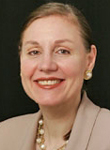MRI to help unlock mysteries of teen risky behavior
By Karene Booker

The National Institutes of Health (NIH) has awarded $1.7 million to Cornell to enhance understanding of why adolescents are prone to taking risks.
The study, which will compare differences in the brains of teens and adults when faced with risky decisions, will be the first to use the Cornell MRI Facility, a new, state-of-the-art center for neuroscience and other fields of research in Martha Van Rensselaer Hall.
The project will bring together a team of economists, psychologists and neuroscientists to examine decision-making processes in adolescents and adults and shed light on competing theories about how the teen brain works.
"Research suggests that adolescents differ from adults in emotional reactivity, motivation and self-regulation, but substantial ambiguities remain about how these factors determine adolescents' risky decision-making," said Valerie Reyna, principal investigator for the grant, professor of human development in the College of Human Ecology and co-director of the Cornell MRI Facility. "Our research will disentangle these key causal factors to better understand, predict and ultimately reduce adolescents' unhealthy risk-taking."
The team will answer unresolved questions about how adolescents' responses to rewards might differ from responses to losses or negative consequences and how desires, strong emotions or the way risks are presented may change responses to risk and to reward. Using functional magnetic resonance imaging (fMRI) techniques performed on the 3 Tesla MRI scanner at the Cornell MRI Facility, the researchers will also look at how the adolescent brain reacts differently from the adult brain when making decisions about risks.
The universitywide facility is the newest addition to Cornell's imaging resources and will provide detailed structural and functional images for a broad range of scientific studies involving humans, small animals, plants and biomedical materials. Physicist Wenming Luh is the technical director of the facility.
Other investigators on the grant include William Schulze, the Kenneth L. Robinson Professor of Agricultural Economics and Public Policy; David Dunning, professor of psychology; Ted O'Donoghue, professor of economics; Brian Wansink, the John Dyson Professor of Consumer Behavior; Barbara Ganzel, research scientist in human development; all from Cornell in Ithaca; and Henning Voss, associate professor of physics in radiology at Weill Cornell Medical College in New York City.
Karene Booker is an extension support specialist in the Department of Human Development.
Media Contact
Get Cornell news delivered right to your inbox.
Subscribe